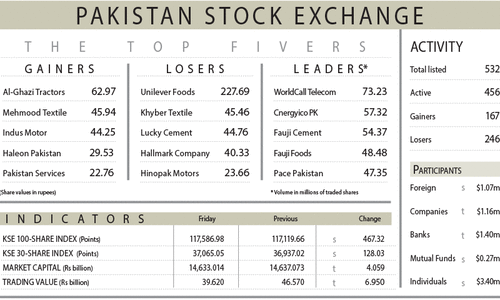NEW DELHI, May 8: India’s government on Thursday halted trading in futures contracts for key staple foods and for rubber as it battled to avoid an election drubbing due to high inflation.
The government suspended futures trade in basic foods such as chickpeas, soybean oil and potatoes for four months, saying the move was aimed at stopping price rises driven by speculators. It also halted futures trade in rubber.
The government said more efforts were also underway to fight inflation in Asia’s third-largest economy, as cement producers on Thursday joined steelmakers in pledging price cuts.
“The government is not helpless and it has means to ensure prices are brought down,” junior industry minister Ashwani Kumar said in New Delhi.
“More measures both administrative and fiscal are in the offing to control inflation.”
The promise by cement-makers to cut prices came a day after steelmakers said they would reduce charges following a plea by the government.
“In the course of the coming few days, a significant reduction in cement prices can be expected,” Kumar said after the government vowed further tough action against the sector besides an export ban and allowing duty-free cement imports.
The steelmakers have announced cuts in prices by up to Rs4,000a ton for three months.
The Congress-led government is desperate to wrestle down inflation to avert a voter backlash in general elections due by next May. The election is seen as a bellwether of popular discontent over inflation running at a 42-month high of 7.57 per cent despite aggressive monetary tightening, which has pushed interest rates to six-year highs.
The government had already suspended futures trading in other basic foods such as rice and wheat, which are staples in the country of 1.1 billion people.
Futures contracts involve betting on future price movements of such items as commodities, bonds, currencies and shares.
The latest futures ban flew in the face of a government expert panel, which last week said such a move would have little impact on inflation.
But the communist backers of the minority Congress government have been clamouring for a blanket food futures trading ban and analysts said it was vital for the government to be seen taking action.
“It may be politically wise to do that for a short period to see if it has any impact at all on inflation,” Finance Minister Palaniappan Chidambaram said in Madrid earlier this week, according to media reports.
But Asian Development Bank chief economist Ifzal Ali called banning food futures trade “a political gimmick.”—AFP













































Dear visitor, the comments section is undergoing an overhaul and will return soon.